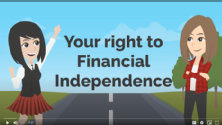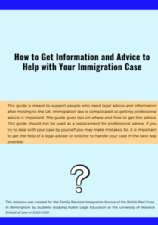Public Legal Education
Public Legal Education
Warwick LinC
Public legal education addresses legal need arising from lack of awareness of the legal system and reduced access to sources of assistance at a community level, rather than through case specific or individual legal advice.
The module aims to introduce students to the ideas and practice of public legal education through a mix of clinical and experiential learning that provides practical support to our local community.
Community projects 2020-21
As part of the PLE module, students undertake community-based projects to develop and deliver public legal education. Working with community organisations, they use their legal knowledge in creative ways to design and deliver community sessions that address defined needs. This can take the form of workshops, social media, teaching materials or films – whatever fulfils the brief for the organisation and works effectively for their audiences.
Some of the student projects this year:
-
Financial Independence for People with Learning Disabilities (Grapevine):

People with learning disabilities are disproportionately subject to financial abuse, and they are often denied financial independence and the tools to achieve this. The students worked with Grapevine to create an animated film for youth with learning disabilities about financial independence, covering issues including decision-making and welfare benefits, to help develop early awareness of their right to financial independence as they enter adulthood.
-
Access to Annual Health Checks during COVID-19 (The RIPPLE Project, Central England Law Centre and Grapevine):
Students supported the work of the RIPPLE Project to understand the impact of COVID-19 on the provision of annual health checks. They drafted FOI questions for local GP surgeries, conducted research and developed accessible information resources about how the process had changed and what to expect.
-
Supporting Refugees to Access Legal Information and Advice (British Red Cross):

The Family Reunion Integration Service of the British Red Cross in Birmingham reported that many of the people they support struggle to access reliable information and appropriate legal support. Our students attended their weekly social hub to learn about the experiences of the refugees they support, developed an information resource, and delivered an informal workshop.
The guides can be viewed here: Red cross guide (Arabic version) Red cross guide (English version)
-
Coventry Advice Awareness Campaign (Coventry Independent Advice Service):
This year students worked to support the Coventry Independent Advice Service (CIAS) to develop their social media presence. They created an Instagram account for CIAS and developed bespoke content on key issues affecting youth and other populations served by CIAS. Check out their Instagram page here: https://www.instagram.com/coventryindependentadvice/
-
Law for Life Placement (Law for Life):
Three students carried out a placement with Law for Life: the Foundation for Public Legal Education to work alongside their Director of Education across a range of projects. These included conducting research into access to housing for migrants, researching and creating a guide for accessing duty solicitors during and beyond the pandemic, and creating a visual representation of the section 21 eviction process.
'Students create videos on Council Tax for Coventry Independent Advice Service'
Find out more about the Council Tax video projectGoing forward, many of these resources will be showcased on the Warwick University pages of Advice Now the Law for Life Public Legal Education website.
Partners we’ve worked with on projects
-
Law for Life & Advicenow (the Public Legal Education Website)
